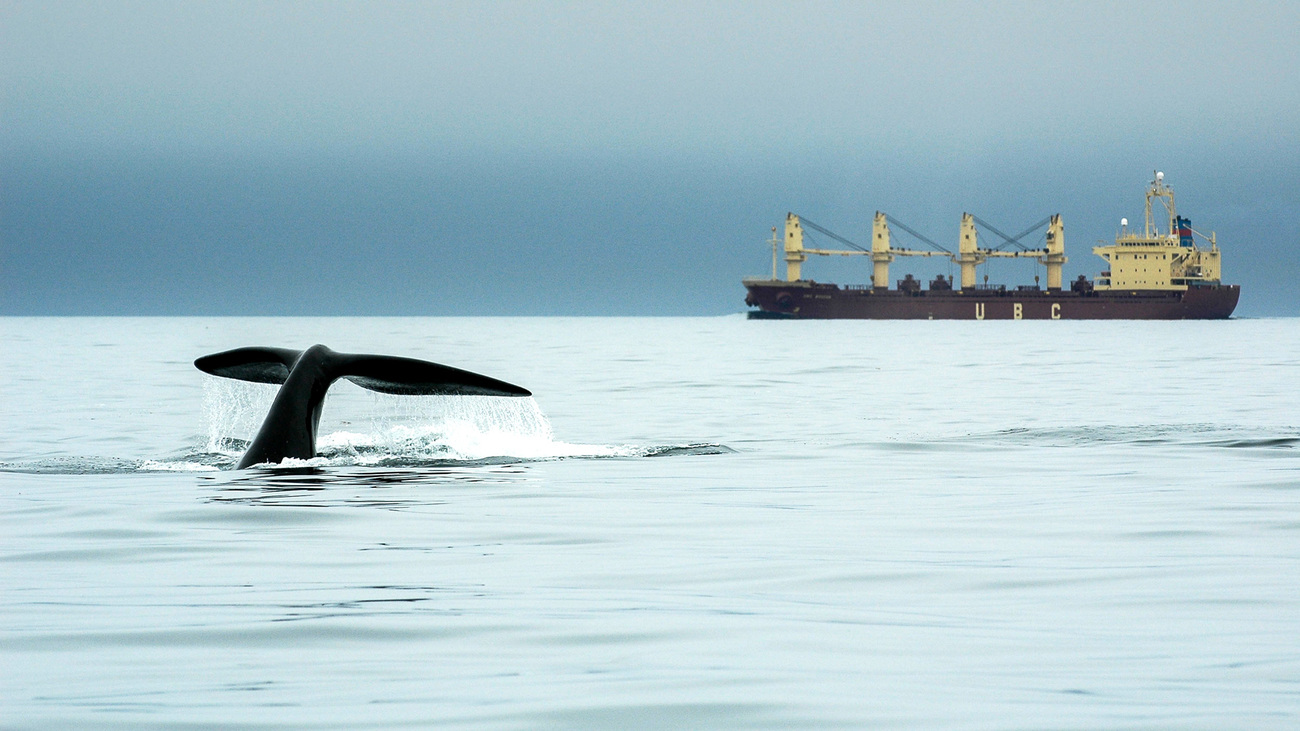Ocean Noise Reduction - Global
Saving marine life could be as easy as turning down the volumeslower ship speeds help blue whales hear each other
slower ship speeds help blue whales hear each other

“Pardon?” “Can you speak up?” “What did you say?”
We have all tried to have conversations at noisy parties or loud bars, and it’s not easy. You may get the gist of what the other person is saying if they speak up, but at best you can only hear every other word over the clamour. Eventually, most people either move the conversation to a quieter area or give up on trying to talk altogether.
Whales and many other marine animals live in incredibly loud environments. Since the 1950s, underwater noise produced by shipping has doubled each decade as more and more ships speed thunderously through the ocean.
Like with humans, heavy background noise makes it hard for marine animals to communicate. Yet unlike humans, marine animals cannot escape the noise.
Just 50–70 years ago, any one blue whale was able to communicate with another blue whale all the way across the Atlantic Ocean. Now, only whales within a tenth of that distance can hear one another—anything farther out is a “deaf zone” due to heavy ocean noise. A blue whale born in the middle of the last century experienced a very different ocean soundscape than those living today.
Luckily, noise pollution is easier to remove from the ocean than other pollutants. The minute you stop producing noise, it’s gone—no residue remains; nothing needs to be cleaned up.
Decreased ship speeds produce additional benefits for animals and the environment—they lower risk of ships striking whales and reduce the amount of carbon dioxide emitted into the ocean. In fact, when ships slow down, they also save the shipping industry money by expending less fuel.
Slowing down ships is an incredibly quick solution that makes the ocean quieter and safer for whales. This is what IFAW wants to achieve with our new Blue Speeds initiative.
We are asking the EU to lower ship speeds in its waters for all ships traveling to or from EU ports for a quieter, healthier and safer ocean. We are not asking for a big change; just a 10% reduction from current shipping speeds would have a huge impact on whales and ocean health. That small change would reduce the underwater noise from shipping by around 40%, the risk of collisions with whales by 50% and greenhouse gas emissions by 13%.
Related content
Every problem has a solution, every solution needs support.
The problems we face are urgent, complicated, and resistant to change. Real solutions demand creativity, hard work, and involvement from people like you.